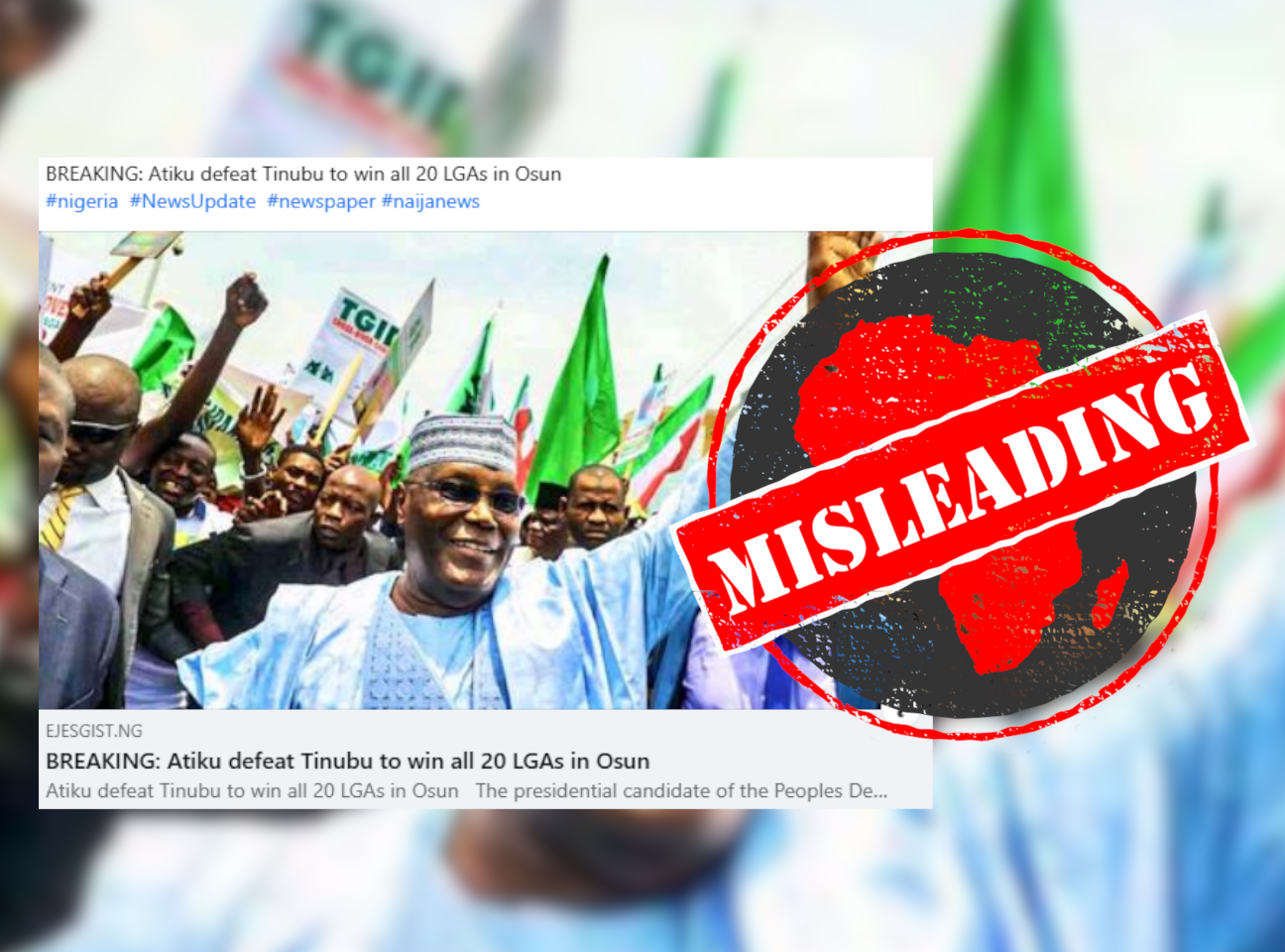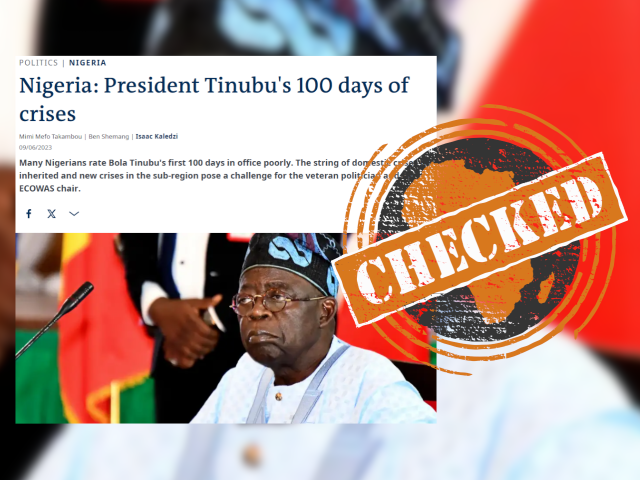IN SHORT: Osun state in southwest Nigeria has 30 local government areas, not 20. So the claim that PDP presidential candidate Atiku Abubakar “won all 20 LGAs” to defeat his rival Bola Tinubu of the APC is misleading. Abubakar won 20, but Tinubu garnered 10.
A Facebook post claims that Atiku Abubakar, the Peoples Democratic Party (PDP) candidate for Nigeria’s presidency, has defeated the ruling All Progressives Congress (APC) candidate Bola Tinubu to win all local government areas in Osun state.
It includes a link to a media report with the headline: “BREAKING: Atiku Defeat Tinubu To Win All 20 LGAs In Osun.”
Osun is in Nigeria’s southwest geopolitical zone. The zone was considered Tinubu’s stronghold.
But did Tinubu suffer a heavy defeat, losing all local government areas in Osun state?

Osun state has 30 local government areas, not 20
The headline of the report is misleading and misrepresents its body text.
On 25 February 2023, the Independent National Electoral Commission (Inec) conducted the presidential and national assembly elections across the country, including Osun’s 30 local government areas.
The report correctly spells out the presidential election results Inec announced for Osun. Abubakar won in 20 local government areas with a total of 354,366 votes. Tinubu got 343,945 votes and “won in 10 local governments”.
Labour Party presidential candidate Peter Obi came in third place in Osun, with a total of 23,283 votes. Rabiu Kwankwaso of the New Nigeria Peoples Party scored 713 votes.
The headline implies Tinubu won no local government areas of Osun state. It is misleading.
Republish our content for free
For publishers: what to do if your post is rated false
A fact-checker has rated your Facebook or Instagram post as “false”, “altered”, “partly false” or “missing context”. This could have serious consequences. What do you do?
Click on our guide for the steps you should follow.
Publishers guideAfrica Check teams up with Facebook
Africa Check is a partner in Meta's third-party fact-checking programme to help stop the spread of false information on social media.
The content we rate as “false” will be downgraded on Facebook and Instagram. This means fewer people will see it.
You can also help identify false information on Facebook. This guide explains how.




Add new comment